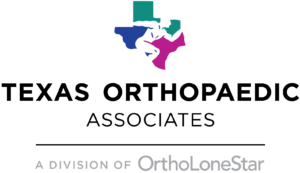Shoulder dislocation is common, but this seemingly simple injury can lead to major damage such as a torn labrum (the soft tissue that surrounds your shoulder socket). The skilled team at Texas Orthopaedic Associates offers arthroscopic labral repair for shoulder injuries at their locations in Dallas, Plano, Weatherford, Keller, and Fort Worth, Texas. If you think you may have torn the soft tissues of your shoulder joint from a dislocation, call your nearest office or book an appointment online for prompt medical care.
SHOULDER DISLOCATION Q&A
What is a shoulder dislocation?
The shoulder is the most frequently dislocated joint in your body. Shoulder dislocation occurs when your upper arm bone (humerus) pops out of your shoulder joint. This injury occurs when a strong force, such as a fall, pulls your bones out of place.
When should I see a doctor for a dislocated shoulder?
You should call Texas Orthopaedic Associates, right away if your shoulder appears dislocated. You may be able to tell you shoulder is out of place just by looking at it. Aside from visible deformity, signs and symptoms of shoulder dislocation include:
- Intense pain
- Swelling and bruising
- Inability to move the shoulder
Don’t try to move your shoulder back into place on your own. Immobilize it with a splint or sling in its current position while you wait for medical care.
What are the complications of a dislocated shoulder?
A dislocated shoulder may cause damage to the joint’s surrounding tissues. In addition to tendons, ligaments, and muscle, your shoulder joint contains strong, fibrous tissue called labrum.
The labrum surrounds your shoulder socket and helps to keep your upper arm bone in place. Additionally, the labrum attaches to many ligaments in your shoulder. A labral tear may occur at the same time as a shoulder dislocation, or it may be the underlying cause of repeat dislocations.
When would I need surgery for a shoulder dislocation?
To evaluate the severity of your shoulder dislocation, your physician at Texas Orthopaedic Associates, performs a thorough physical exam. They also take an in-office X-ray to look for broken bones or other signs of damage.
If your shoulder dislocation caused injuries to the surrounding tissue, such as a labral tear, they may recommend surgery to repair it. The team at Texas Orthopaedic Associates, always begins with the most conservative treatment and only performs surgery as a final option.
The team of orthopaedic surgeons at Texas Orthopaedic Associates, is highly trained in minimally invasive techniques such as arthroscopic labral repair. This procedure uses a long, thin instrument called an arthroscope to avoid making a large incision.
For advanced treatment of shoulder dislocations, call Texas Orthopaedic Associates, or book an appointment online today.


